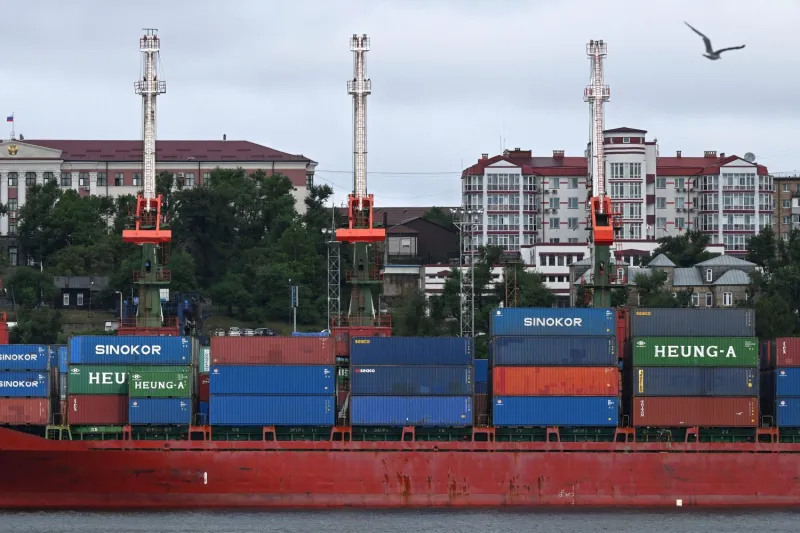Russian Sanctions: Are they working?
As a response to Russia’s invasion of Ukraine in February 2022, the United States, the G7, and other international partners have imposed unprecedented global economic sanctions on the Russian Federation with the goal of degrading its defense sector, its ability to extract energy resources, and its access to the global financial system.
The aim of the economic sanctions against the Russian Federation is to inhibit Russia’s ability to manufacture sophisticated weapons and generate revenue to fund its war in Ukraine. At present, only the United States, the European Union, and a limited number of allies have imposed sanctions. This means that only western companies need to be concerned with their direct dealings with Russia and third-party states that trade with Russia. Western companies are still allowed some trade with Russia, in goods such as food, medical supplies, and other goods to prevent harming average Russians. Countries not participating in sanctions are free to conduct business with Russia as they please as the United States and its allies have yet to impose sanctions on them because of doubts about their effectiveness.
The United States and its partners have banned trade of foreign made semi-conductors and microelectronics that allow Russia to replenish its inventory of sophisticated missiles and aviation equipment. The Russians have used a complex network of suppliers, managers, and friendly nations around the world to circumvent sanctions. Russian high-tech imports from non-sanctioning countries such as Turkey, Armenia, Kazakhstan, and the United Arab Emirates have surged since the invasion of Ukraine has begun.
Sanctions regimes have also targeted Russian energy extraction, limiting an important source of income for the Russian regime. Prices have been capped by western sanctions at $60 dollars a barrel. To avoid the sanctions targeting the sale of oil, Russia has introduced a transponder-less shadow fleet of oil tankers to switch Russian crude to officially flagged vessels underway in the middle of the night. Western price caps have also been ineffective, 96% of oil exported from Russia’s Pacific Ocean ports has a selling price averaging over $73 dollars a barrel. Russian President Putin is also looking to avoid sanctions by budling a sanctions-proof supply petroleum supply chain, consisting of Russian owned transportation and insurance services.
Sanctions against Russia’s banking sector have been particularly effective. Russia has been blocked from using SWIFT system, making it difficult for Russia to transfer foreign currency reserves. The Russian ruble has buckled under the weight of sanctions, falling 40% against the dollar since December 2022. Despite the severe sanctions the Russian banking system has been surprisingly resilient, the Russian central bank tightened its capital outflows while at the same raising interest rates for domestic banks. Thanks to large pre-war trade surpluses, Russia has been able to rely on its large reserves of foreign currency to stabilize its economy, for now.
For as long as sanctions have existed there have been actors evading them. North Korea and Iran have already written the playbook for modern sanction avoidance. Imposing sanctions is easy, enforcing them is extremely difficult. There will always be actors inventing profitable schemes to elude sanctions, but that doesn’t mean it’s impossible to address. The United States and its allies have made progress in convincing some countries and businesses not to turn a blind eye toward sanctions. Uzbekistan, Kazakhstan, Turkey, and Vietnam have all stopped using Russian payment systems out of fear of violating U.S. sanctions. The United States has the power to enforce secondary sanctions on countries, companies, and individuals around the world, making them choose between continuing trade with Russia or be forced out of the U.S. market. For most actors the choice is an easy one, especially ones that use dollars.
There is proof that the sanctions regime against Russia is having the desired effect. Prior to the invasion of Ukraine, Russia imported approximately $13 billon in high-tech components. Today that number has been reduced to $489 million. There are reports that Russia has even resorted to collecting chips from fridges and dishwashers. The embargoes on seaborne Russian crude oil shipments and $60 per barrel price cap imposed by the G7 is probably having the most dramatic effect on Russian banking and economy. In 2023 alone, oil revenues fell by nearly $15.6 billion, that’s nearly 29 percent from 2022 revenues. The lack of energy revenues has shrunk the Russian economy by 2%, while budget deficits are increasing to $30 billion.
Success of the sanctions regime will be evident if the effects are seen on the battlefield in Ukraine. Time will tell if the West can paralyze Russia’s economy enough to force an end to the conflict. One thing is nearly certain is that time is not on Russia’s side the longer the war drags on in Ukraine, every day that passes, sanctions bite more and more.
Article Written by Kurt Hogarth
Sources:
https://www.voanews.com/a/russia-copying-iran-to-evade-western-sanctions-report-claims/7125028.html
https://home.treasury.gov/news/press-releases/jy1494
https://www.economicsobservatory.com/sanctions-against-russia-what-have-been-the-effects-so-far
https://apnews.com/article/why-is-ruble-falling-ee777eeaf897d42befae052336fc35d5

